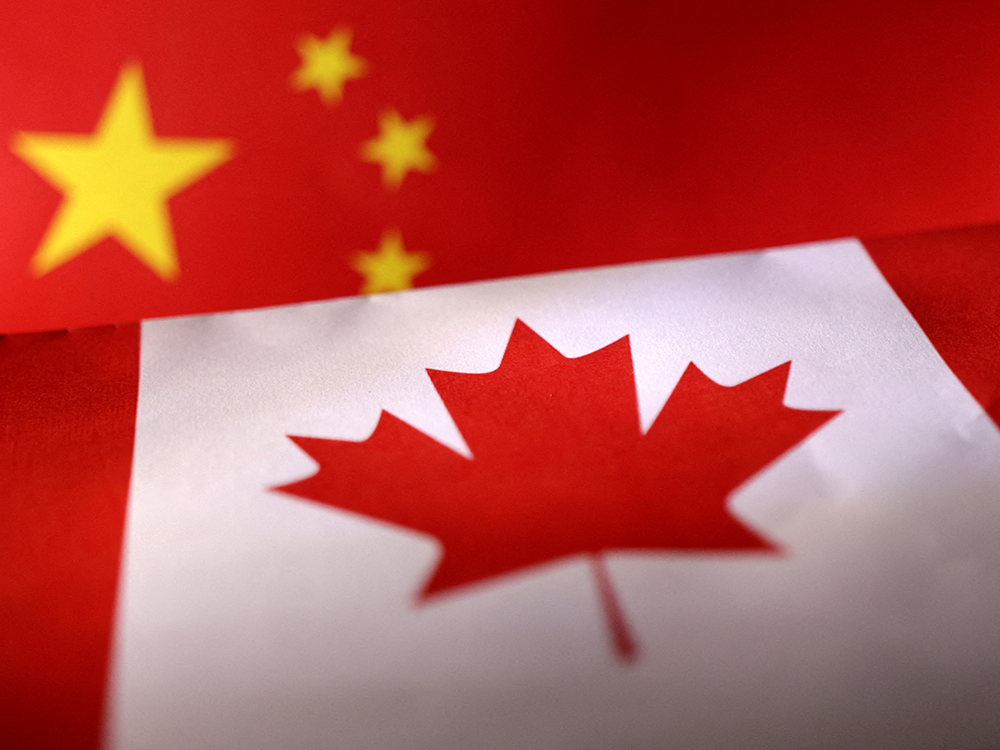[ad_1]
“China’s Reopening Could Help Canada’s Economy Ride Out Economic Uncertainty: Analysts”
This section is presented
This section was created by the editors. The client was not given the opportunity to restrict the content or to check it before publication.
from HSBC
Breadcrumb Trail Links
It’s more of a “clear plus point” than would be the case for other countries with fewer resources: BMO chief economist
Author of the article:
Reuters
Steve Scherer and Fergal Smith
Published on 02/06/2023 • 2 minutes reading time
Join the conversation Canada, as a commodity-exporting country, could benefit more than other countries from China’s reopening. Photo by DADO RUVIC/Reuters
content of the article
OTTAWA/TORONTO — China’s swift reopening should boost demand for commodities that Canada produces in abundance and potentially help Canada’s economy avoid a recession, as long as it doesn’t also push up inflation and spur further rate hikes.
advertising 2
This ad has not yet loaded, but your article continues below.
SIGN UP TO UNLOCK MORE ARTICLES
Create an account or log in to continue your reading experience.
- Access items from across Canada with one account
- Share your thoughts and join the discussion in the comments
- Enjoy additional articles per month
- Receive email updates from your favorite authors
content of the article
The Bank of Canada last month raised interest rates to 4.5 percent, the highest in 15 years, and said the economy could falter and slide into recession in the first half of the year. This prompted the central bank to halt its most aggressive tightening cycle for the time being, becoming the first major central bank to do so.
By clicking the subscribe button, you agree to receive the above newsletter from Postmedia Network Inc. You can unsubscribe at any time by clicking on the unsubscribe link at the bottom of our emails or any newsletter. Postmedia Network Inc | 365 Bloor Street East, Toronto, Ontario, M4W 3L4 | 416-383-2300
Thanks for registering!
content of the article
content of the article
But analysts say a recovering Chinese economy is likely to boost demand for Canada’s key exports, including oil, natural gas, grains, grains and other commodities, making a long-awaited soft landing for the economy more likely than previously thought.
China, the world’s second-largest economy, has lifted many of its weakest restrictions after abruptly jettisoning its strict “zero-COVID” policy in December.
advertising 3
This ad has not yet loaded, but your article continues below.
content of the article
“We really see China really hitting back with expected growth, liquidity and tax spending accelerating from here, with the Canadian dollar and Canadian equities being the primary beneficiaries,” said Joseph Abramson, co-chief investment officer at Northland Wealth Management.
Traders have been bidding on Canadian stocks and the Canadian dollar, dubbed the “commodity currency,” since news of China’s reopening broke in December. The benchmark stock market, which is about 30 percent weighted in energy and mining stocks, is up nearly 8 percent, while the loonie is up 1.8 percent against the US dollar.
We’re really seeing China roaring back with expected growth, liquidity and expected acceleration in fiscal spending
Joseph Abramson, Northland Treasury Manager
Doug Porter, chief economist at BMO Capital Markets, said China’s reopening is more of a “clear plus” for Canada than for other countries with fewer commodity exports.
advertising 4
This ad has not yet loaded, but your article continues below.
content of the article
Canada has the world’s third-largest oil reserves, which have risen by as much as 17.9 percent since China began easing its restrictions in December, before giving back much of those gains.
But China’s reopening-driven oil price surge could stoke inflationary pressures, Bank of Canada Governor Tiff Macklem highlighted in an interview with Reuters last week as concerns that interest rates should remain on hold.
“The biggest short-term risk that could quickly throw things off would be if China’s rapid reopening of the economy causes global commodity prices, oil prices, to rise,” Macklem said.
In the meantime, the US Federal Reserve, the European Central Bank and the Bank of England have also set the course for a pause.
advertising 5
This ad has not yet loaded, but your article continues below.
content of the article
-
Canada Goose lowers outlook after COVID disruption hit sales in China
-
Ontario Teachers’ Pension Plan pauses private dealings with China
-
The IMF raises growth prospects for the first time in a year and expects inflation to have peaked
Most analysts are forecasting a more services-driven recovery in China and do not expect this to lead to a dramatic oil shock.
“If it’s primarily services that are driving the recovery from the easing of restrictions, you might not be getting these explosive oil input cost pressures around the world,” said Derek Holt, head of capital markets economics at Scotiabank.
Karl Schamotta, chief market strategist at Corpay, said China’s reopening will help undercut global price levels and potentially offset demand destruction if the economy slows.
“But we don’t think western central banks will be forced to tighten more aggressively in response to a new and unexpected inflation shock,” he added.
© Thomson Reuters 2023
Share this article on your social network
Comments
Postmedia strives to maintain a lively but civilized discussion forum and encourages all readers to share their opinions on our articles. Comments may take up to an hour to be moderated before they appear on the site. We ask that you keep your comments relevant and respectful. We’ve turned on email notifications – you’ll now receive an email when you get a reply to your comment, there’s an update on a comment thread you follow, or when a user you follow comments follows. For more information and details on how to customize your email settings, see our Community Guidelines.
Source: financialpost.com
[ad_2]
Don’t miss interesting posts on Famousbio










